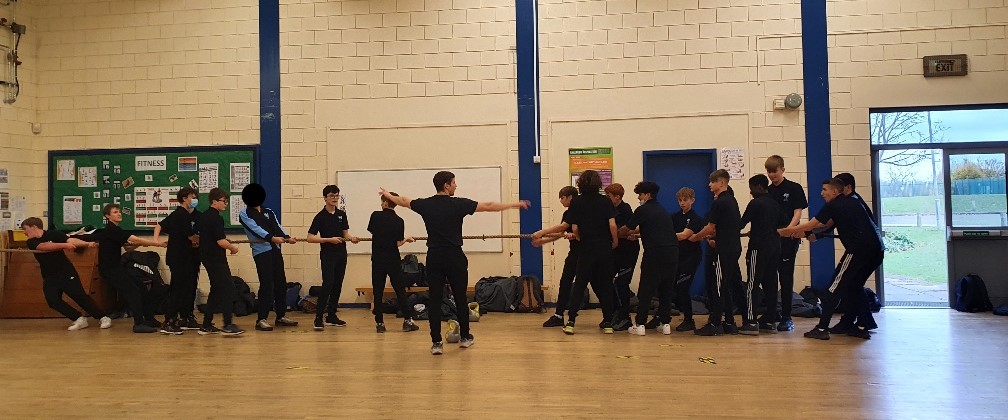Academic tackles male mental health in schools
Date 29.11.2021

Helping young males get in touch with their emotions to support their mental health is the focus of one academic’s research.
Michelle Bye-Gannon is a postgraduate researcher in the University’s Faculty of Health, Education and Society.
She is exploring the role of gender and identity in the experiences of male-identifying secondary school students. As part of that, she is currently looking at understanding and supporting young men’s mental health.
In England, around one in eight men has a common mental health problem such as depression, anxiety, panic disorder, or obsessive-compulsive disorder (OCD).
Adult men are less likely to seek help if they experience mental ill-health than women (only 36% of referrals to NHS talking therapies are for men) and they are three times as likely to die by suicide.*
For her research, Michelle is working with secondary schools to develop interventions that proactively address men’s difficulties by normalising males discussing their mental health and knowing how, and where, to seek help before they become adults.
Michelle explains: “Mental health is one of society’s most pressing healthcare issues. Slowly, institutions are coming to the realisation that they need to prioritise encouraging people to talk about, and seek help for, their mental health.
“Tragically for some, change is not happening fast enough but I believe that earlier interventions could help address this and significantly reduce outcomes, such as the high male suicide rates we continue to witness nationally.
“My research seeks to result in tangible outcomes of impactful strategies and effective services that can be recommended to schools and academies to better support the mental health and wellbeing of their male students. For instance, how do these students interpret and express their maleness when in school and how can schools use strategies to support their emotional wellbeing.”
As part of her work, Michelle organised an awareness and activities event for teenage, male-identifying school students to help them understand more about seeking help when they are experiencing emotional upset and to see mental wellbeing as a normal part of human life.
Held at Mark Rutherford School in Bedford during International Men’s Day (Friday 19 November), the event included interactive talks from male guest speakers about their experiences of grief and disappointment, and its subsequent impact on their mental health.
There were also physical activity sessions (linked to mental health messages) with a personal trainer from Coach Gyms to encourage students to open up about their identity and mental health.
One of the objectives was for the students to leave with a clear idea of their own identity and for the event to help reduce stigma around male mental health by encouraging openness around emotional discussions.
Ian is a student at Mark Rutherford School and attended the event. He said: “The event showed us that we matter, that our mental health matters. We felt seen and heard. Everyone has mental health but, as males, we often feel pressured to hide how we feel – this event empowered us to be open and honest with each other.”
Michelle – whose research is expected to report in 2026 – concludes by saying: “The event was an incredibly insightful day for the 100 students that took part, as well as the education practitioners who observed them enthusiastically engaging with the programme of activities. Personally, it was wonderful to witness teenage males taking away important life lessons about themselves and understanding how to support their male friends in future.”
For more about Michelle and her research, contact her at: michelle.bye-gannon@northampton.ac.uk
*Figures from the Mental Health Foundation (Oct 2021).